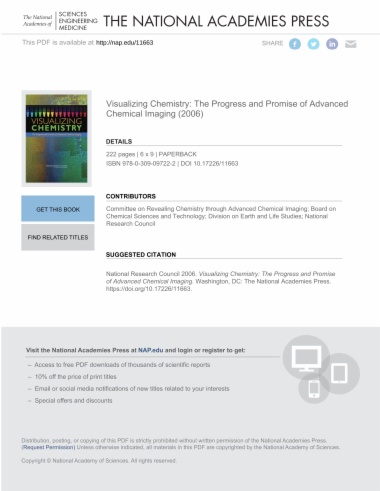

Scientists and engineers have long relied on the power of imaging techniques to help see objects invisible to the naked eye, and thus, to advance scientific knowledge. These experts are constantly pushing the limits of technology in pursuit of chemical imaging—the ability to visualize molecular structures and chemical composition in time and space as actual events unfold—from the smallest dimension of a biological system to the widest expanse of a distant galaxy.
Chemical imaging has a variety of applications for almost every facet of our daily lives, ranging from medical diagnosis and treatment to the study and design of material properties in new products. In addition to highlighting advances in chemical imaging that could have the greatest impact on critical problems in science and technology, Visualizing Chemistry reviews the current state of chemical imaging technology, identifies promising future developments and their applications, and suggests a research and educational agenda to enable breakthrough improvements.